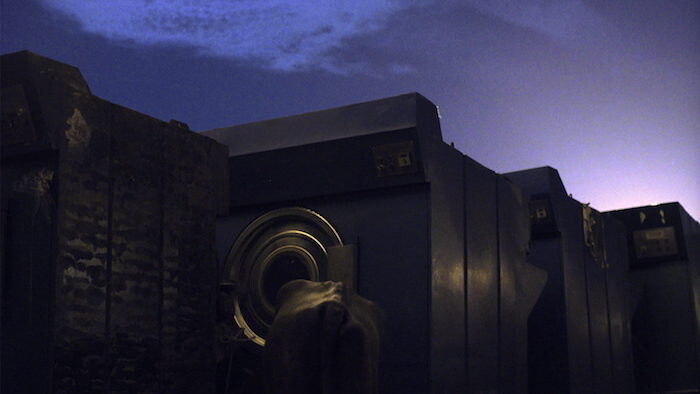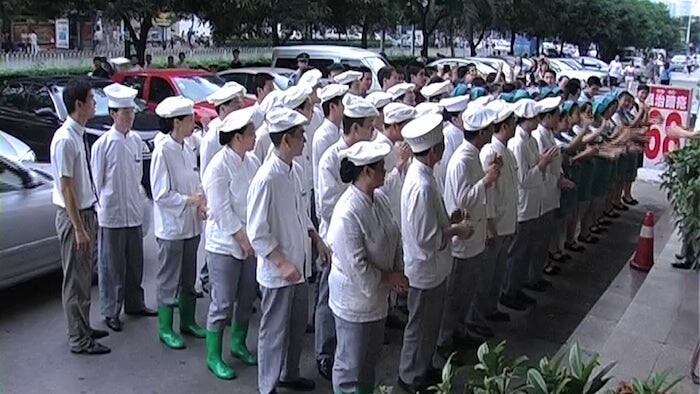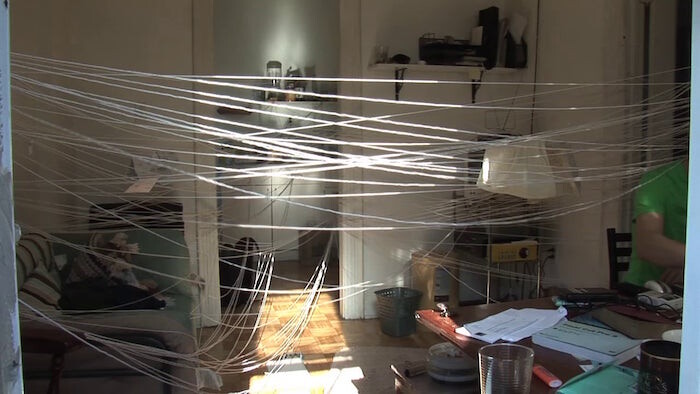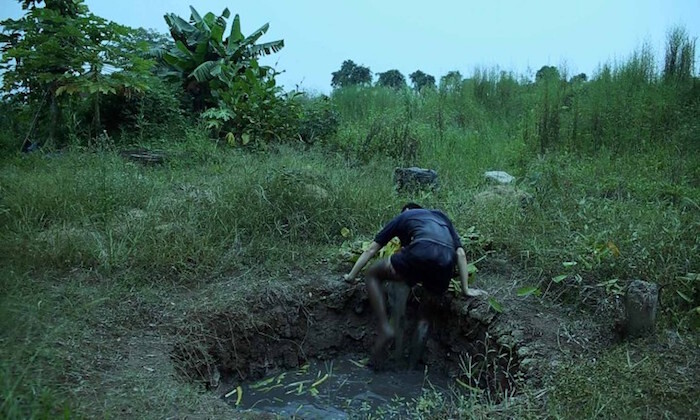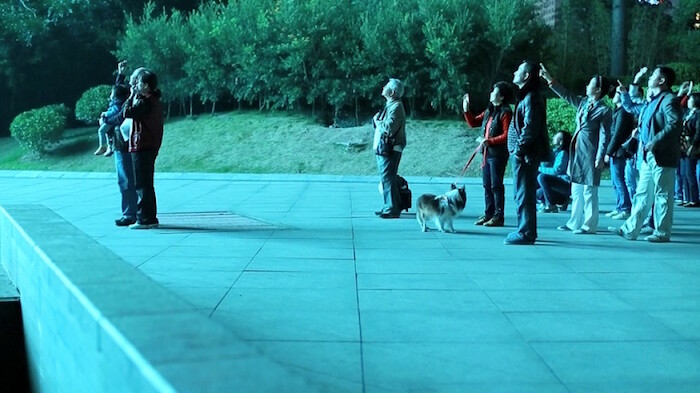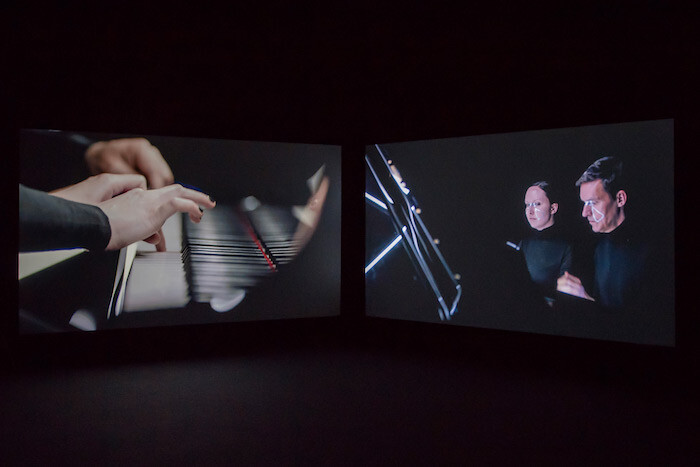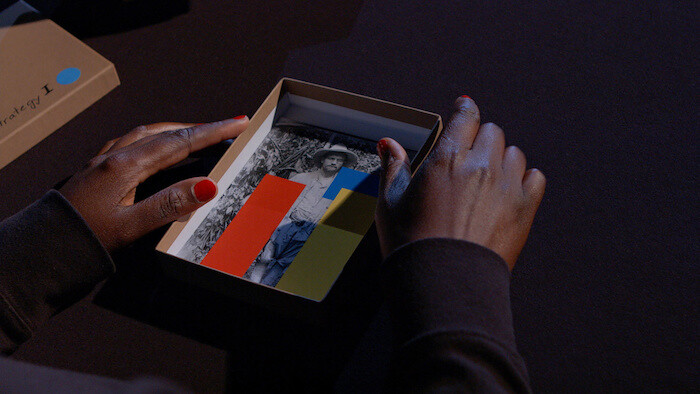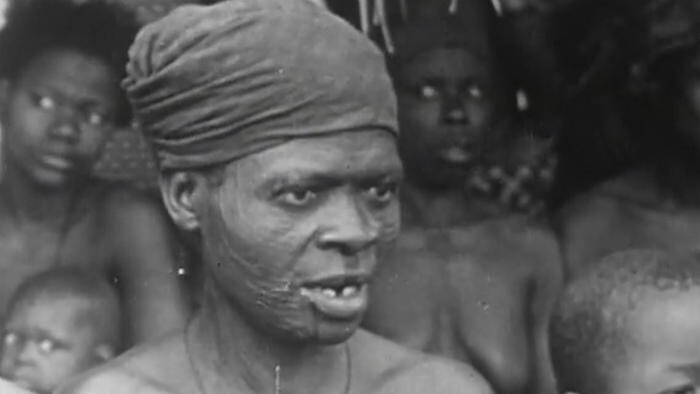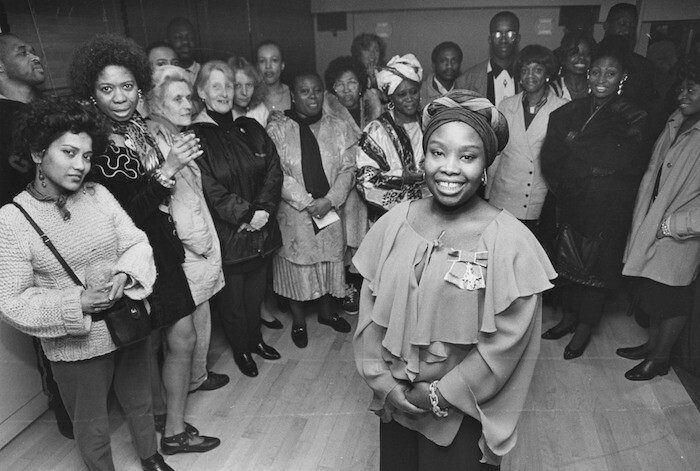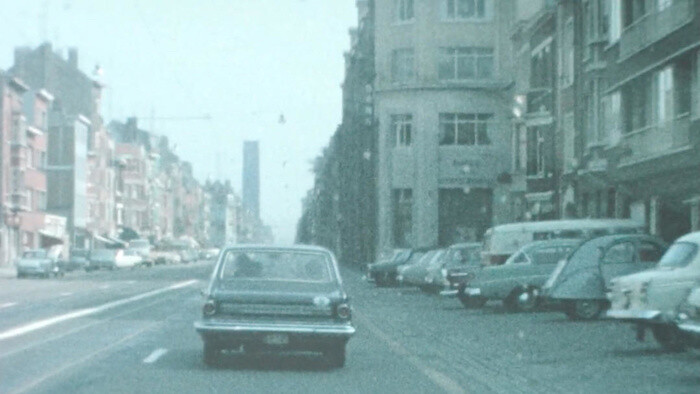The scale and ambition of International Film Festival Rotterdam (IFFR), which packs 593 short and feature films into 12 days of independent cinema, as well as talks, performances, and gallery installations in venues across the city, makes it almost uniquely difficult to approach, even for the experienced visitor. The sprawling program—divided into four sections entitled “Bright Future,” “Voices,” “Deep Focus,” and “Perspectives,” then subdivided again thematically—suggests a festival more assembled than curated. But in its 45th edition, two more considered strands provided some comfort and cohesion.
In the “Deep Focus” section, the experimental films of Zhou Tao were presented in a selective retrospective that, in its interest in the passage of time, led naturally into the competition screening of his latest work, The Worldly Cave (2017). An awareness of duration is central to this film, each image elongated and the experience of time stretched. Two early works—relatively simple but satisfying in both concept and execution—explore the individual’s relationship with their environment. Set in Shanghai, 1234 (2007) presents a series of corporate drills in which employees exercise and chant, a “corporate socialism” through which unity is achieved in uniformity. Time is taken—if only momentarily—for workers to come together in ritualistic, fixed positions. Each brief scene is a slice in time. Made on residency in the US, Time In New York (2009) is a theatrical exploration of how one man relates to his living space. A fixed camera watches Zhou as he moves around a room, a cord attached to his waist charting his mundane movements until a thick web is formed around him. Across cuts, a map is made of motion, and time itself is traced.
Zhou shifts towards a more observational documentary mode with After Reality (2013) and Blue and Red (2014). Both remain focused on depicting environments, but favor large areas (Guangzhou and Paris, then Shaoguan and Bangkok) over small spaces. Zhou’s locations—public squares, construction sites, industrial zones, campsites, and wastelands—are often sites of collision between nature and artifice, rural and urban. The representation of these conflicted or contested spaces is itself dislocating: the contents of every shot ever more unidentifiable and each scenario more incongruous. In these films, Zhou imposes a visual narrative on discovered situations through the blending of locales, selective composition, oppositional editing, or a prolonged gaze—gestures that make the ordinary irregular. This is accentuated in The Worldly Cave (2017), in which Zhou’s compositions become more abstractly framed, his lighting distinctly unnatural in appearance, and his sound design more atonal and echoing. Small figures are dwarfed increasingly by the frame; rock formations form alien planes against muted skylines; waves ripple in watery caverns; men fish in mud; and a cow is tethered inexplicably to a rusted green washing machine. Time moves in mysterious ways and the familiar is rendered strange.
“Pan-African Cinema Today”—a subsection of the main thematic program “Perspectives” exploring experimental engagements with the African diaspora on film—included some of the festival’s more remarkable propositions. The Otolith Group’s The Third Part of the Third Measure (2017) was informed by the minimalist composer Julius Eastman. Two pristine, precise channels present an uninterrupted recital of three Eastman compositions (Crazy Nigger, Gay Guerrilla, and Evil Nigger, all ca. 1980) by four musicians on two pianos. This is bookended by two readings of Eastman’s description of the function of the pieces and their titles—read first flatly by poet Dante Micheaux, and then performed pointedly by movement and vocal artist Elaine Mitchener, imposing meaning on each phrase through annunciation and gesture. The politics of performance, asserted first gently then forcefully.
Equally pinpoint, Belinda Kazeem-Kamiński’s Unearthing. in Conversation (2017) sees the artist sat in a dark, empty auditorium, looking at a camera and interrogating the contents of a box containing ethnographic photos from the Congo and related documents that she adapted and updated. Though alone, she seems to speak to different listeners, shifting tone and tenor as she challenges her own relation to this material as much as that of an assumed interloper. “How does one oppose by looking?” she asks. By being this careful, considered, and confrontational about it, presumably. A variation on this style of reflexive enquiry came from Her Name In My Mouth (2017), with Onyeka Igwe rhythmically cutting and looping archive footage of the Aba Women’s War—an anti-colonial insurrection that took place in Nigeria in 1929—alongside newly recorded material focused on gesture and movement, centralizing the role of the female body as observed in the archive. More than just a repurposing of the past, it feels like a reactivation and a reanimation.
Two films offered touching tributes to the legacies of those who have passed. Ayo Akingbade’s Street 66 (2018) blends archive, interviews, and new footage in a portrait of Dora Boatemah, a legendary London housing activist whose action in the late 1980s was so successful as to now seem unreal, barely three decades later. A legacy brought back to life, to inform but also to inspire. In Sandra Heremans’s The Yellow Mazda and His Holiness (2018), the filmmaker starts by musing not just on blackness but on the color black itself—“an image and also not”—before imagining conversations with her father based on new revelations from old letters. She presents her vision on his archive, considering what he might have said then if he knew what she knows now.
Presented as part of a cohesive project, these films complemented and communicated with each other, conveying a continuity that traveled across separate screenings. Dialogues were created between bodies of work and their curator, and between audiences and filmmakers. This experience was not matched (nor, admittedly, was it meant to be) by the festival’s main short film competition, where the juxtapositions were particularly jarring and disjointed. IFFR’s subdivisions can serve to complicate, grouping masses of films under broad classifications that don’t always serve the filmmaker well or guide the viewer. Sometimes curating is about selecting (or rather, omitting), and not categorization, and IFFR’s program can seem put together less to help visitors navigate the festival than for the benefit of other programmers. The ways in which films are grouped can make the viewing experience a lottery. Sometimes this can yield pleasant surprises, but without the luxury of time it’s helpful to have something resembling a map.

